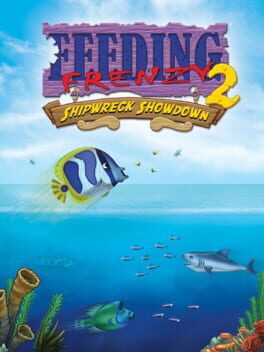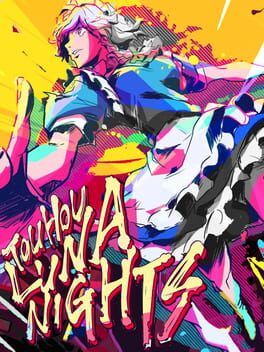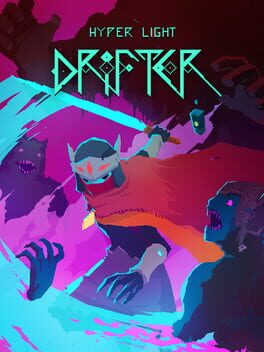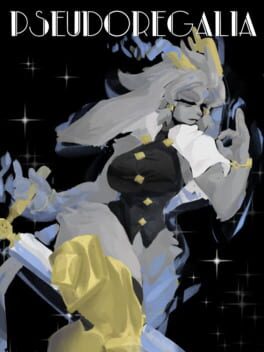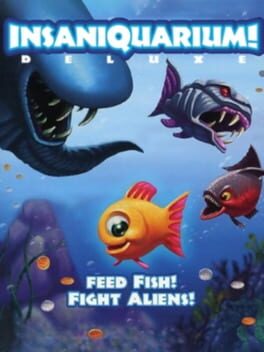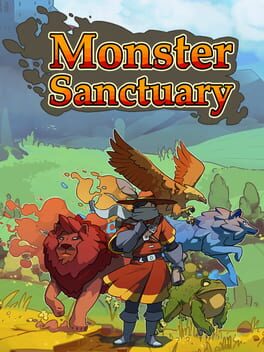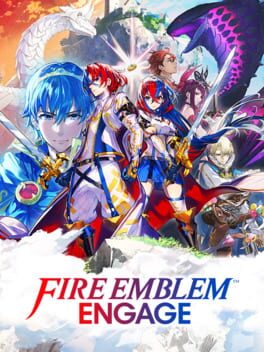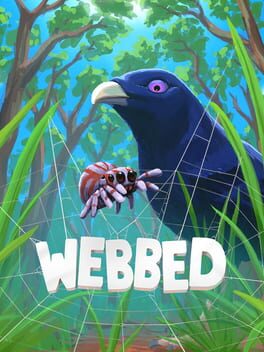Antennifer
Childhood classic. Not a lot going on here, but simple and entertaining. Looks good and plays well despite its age. Probably won't hold your attention for more than a couple of hours unless you really care about highscores, or the time attack mode. Surprised at the lack of fish variety compared to Feeding Frenzy 1. Lots of palette swaps and very few fish assets are actually new to this game, pretty disappointing. The combo system is fun, and can encourage you to take risks. I think it would be more effective if there was some sort of meta progression incentive, but ultimately this is an old, small game.
2019
Luna Nights is absolutely stellar, probably the best metroidvania I've ever played. The elements are light, as most backtracking is just to acquire unnecessary stat upgrades. I actually appreciate this though, as it cuts down on monotony and put the focus on puzzle-solving and combat - which it greatly excels at. You play as Sakuya, a maid with the ability to manipulate time by slowing it, or stopping it completely. The game stays true to its bullet hell roots, especially in the phenomenal boss encounters. They really throw everything at you to balance out the power differential your time powers create. Having to juggle your time, health, and mana creates a fun gameplay loop that encourages you to take risks to recover them. This is the second time I've played through this game. The first being before the bonus level was released, and it's just as good as I remember. All this, and I haven't even mentioned the gorgeous pixel art and awesome Touhou jams that play throughout the game. I only have a two small issues with the game. One, towards the end they send a few too many spongey mobs at you, but they are at most a mild inconvenience and easily ignored. Two, you can get the ability to sprint in the bonus level, but it's a double tap input. The sprint is never necessary, and misinputting every now and then hurt me more than it helped. In the end, it's a short time, but damn if it isn't a good one.
2016
After trying and failing to get into this game a couple times in the past, I finally hunkered down and finished it. As much as I want to love this game, it just doesn't quite get there for me. The music is stunning and the pixelated visuals are so, so pretty. Despite no words being spoken, the game is able to quite effectively tug at your emotions from time to time. The combat is extremely fun and fast paced, the mix of gun and sword play is something I really enjoyed. despite that, some deaths can feel a slight bit unfair as you can be stunlocked and take damage from consecutive attacks due to a vanishingly short invulnerability window. There is also some awkwardness with the 2.5D art style where you will collide or get hit with things that visually shouldn't be able to from that far away - especially when positioned above them. These two gripes are mostly minor though, my main problem with this game is the sheer amount of secrets that I feel don't really respect the player's time. There are some areas where you'll just want to run up against every single wall to see if there is an invisible gap you can pass through. A good amount of these passages contain items necessary to progression as well. This is somewhat alleviated by there being 8 total, and only needing 4 in each area to complete the game. However, it can still be time consuming and frustrating if you don't know the tells, which are not necessarily obvious and left for the player to figure out. The sheer number of them also deflates the feeling of discovery a bit, especially when the rewards are usually just 1/12th of an upgrade. Overall, I still think it's worth playing simply for the amazing art and fun combat, but don't stress too much over finding every single secret unless you really care about a recolor for your player character.
2023
Pseudoregalia is an extremely solid 3D metroidvania platformer. Moving around in this game just feels good, no butts about it. The way you steadily acquire movement options over the course of the game, progression aside, allows you to get used to the moves as you obtain them. The game is very approachable, but also has many chances for the player to express skill and mastery over it. The aesthetic is peak, I love the character and sound design, my only wish in this regard is for a little more enemy variety. In addition, the combat is a little bare bones, and enemies hardly pose a threat. The story is extremely sparse, cute npc dialogue and interactable texts are sprinkled throughout. Navigation can be a teensy bit headache inducing, but once they add a map like they plan to that problem should hopefully be alleviated. All in all, this is a short, very enjoyable experience that I think is easily worth the price tag.
2017
I think I love this game less for what it is, and more for what it represents. This game is far from a good fit for everyone, and you have to be in a very specific headspace to get the most out of it. It is frustrating, time consuming, and extremely monotonous at times - but it is artful, and it is beautiful. It is brutal and punishing survival as a cute, soft, fleshy little pathetic thing ... an adorable slugcat. It is a brilliant example of videogames as an artistic medium. This game legitimately changed how I view art, videogames as art, and the world as a whole in some minor way. Every element of the game comes together in such a perfect way, not to craft a necessarily "good" experience, but a valuable experience nevertheless. I feel like this game is hard to recommend, but solidly worth it for those willing to plod it out.
2004
Carpel tunnel simulator. One of my favorite games as a kid. Doesn't run in a resolution above 640x480, and the screensaver feature requires manual file editing to function on newer computers. Nevertheless, it's a casually fun and addictive classic. The campaign still holds up as simple and enjoyable. Meanwhile, the meta progression grind and virtual fish tank are lovely and provide good long-term reasons to play.
... Is this a survival horror?
... Is this a survival horror?
2020
Monster Sanctuary is a creature-capture metroidvania with a turn-based combat system. While the story itself is somewhat lackluster, the gameplay is absolutely phenominal. You find yourself exploring the world, battling and combating new and fun creatures. These new critters not only have unique uses in combat, but also grant you new overworld powers to allow you to progress through the game as you would expect from a metroidvania. Behind each monster's wonderful pixel art exterior they each have an in-depth skill tree as well as various other avenues for customization. While I don't think it's more intricate than the obvious comparison - Pokemon - it is far less esoteric and easily accessible. These combat intricacies are further explored in exciting PvP battles, as well as the fairly challenging PvE encounters. Along with a baked-in randomizer and other challenge modes, this game is jam-packed with content and easily worth the asking price of only $20 US.
2022
This was the first survival horror game I've ever played, unless you want to count Insaniquarium Deluxe, but what an amazing introduction to the genre. The aesthetic and character designs present in this game are so peak, and they are only propelled further by the story. Having played on keyboard and mouse on the highest difficulty, it felt just right - tho I can imagine the gunplay being even more tense on an analog stick. The menuing is very fluid, and I really didn't experience any issues with the inventory limitation of 6. It added to the fear, as often I had to leave weapons or healing behind and leave myself more vulnerable than I otherwise would have to. With proper management, I would have to leave behind some ammo every now and then, but I never felt the need to ferry items around. Especially since I conserved so much ammo given that enemies are extremely resilient on Survival. The puzzles which make up a large majority of the game feel satisfying and fun. Overall this game is an indie gem in the sea of bland walking simulators that plague the horror genre today.
I wish that the 1.2 patch provided separate options for flashlight and eidetic module inventory space. I think the flashlight should take up inventory space, but the eidetic module shouldn't as it encourages the player to just use external options.
I wish that the 1.2 patch provided separate options for flashlight and eidetic module inventory space. I think the flashlight should take up inventory space, but the eidetic module shouldn't as it encourages the player to just use external options.
2022
Being my first FromSoft title I wasn't exactly sure what to expect going in. The first thing I did was spend 4 hours fighting the Tree Sentinel, I didn't do anything else before he was dead. The combat is extremely satisfying, as expected, and I love the level of player freedom both in terms of navigation and build choice. Having played the game three times, I'm going to say the same thing many people have said, in that, this game is amazing your first playthrough. The world feels massive, endlessly expansive, and actually kinda overwhelming at times. However, on subsequent playthroughs that magic is gone, you know what areas have absolutely nothing to offer you, a large majority of the game can be safely ignored. Perhaps that is a good thing, if you just want to assemble your weirdo build asap and have fun taking on the game's challenges like me then that's great, but it's worth acknowledging. The "open world genre," whatever that vagueness entails, has really soured for me over the years and Elden Ring is one of the few games that does so many things right. So much of Souls combat hinges on strong level design. it's not necessarily hard or novel to implement 'soulslike' elements into your combat system, but what so many games fail at is getting the level design right to properly compliment that system. While I do wonder if the game is inherently worse off for being open world, I think Elden Ring does a good job of intertwining open world and more close-quarters segments and succeeds at both, even if I do have a preference.
2023
This is the game that made me realize I'm not a Tactical RPG fan, and I'm not even sure I'm a Fire Emblem fan. That said, I like this game. The story doesn't take itself too seriously, and is enjoyable. The gameplay is simple and fun, it's evidently a real celebration of the series. However, I have one major gripe: The Emblems™. They are very powerful, which makes sense within the story, but this is to a problematic degree. At a certain point it feels as though the emblem a character has equipped is more important than the character themselves. Especially when many of the characters have one-note personalities, it is very easy to boil many of them down to just being a pile of stats that is either worse or better than the other piles of stats you have - the character becomes the emblem ring they have equipped. This overshadowing of rings coupled with a neutered skill inheritance system leads to a feeling that there really is not a lot of room for creativity. This is a pretty drastic shift from the overwhelming wealth of options present in Three Houses in terms of build diversity, which did also have its drastic flaws, but overall I prefer that system. Three Houses characters were also just much more entwined with the overarching plot, and the fact that you were stuck with the same students over the course of the game meant you got to grow much more attached to them, rather than just replace them with the new recruit with better stats, personal ability, and higher starting SP like is encouraged in Engage. Engage is a good game, and it's probably a lot closer to the traditional Fire Emblem formula than other recent entries, but it's not my favorite.
I purchased the DLC but did not play it, may never.
I purchased the DLC but did not play it, may never.
This review contains spoilers
I absolutely love AC6, probably my favorite game of all time to-date. As someone who has never really been a FromSoft fan, my first of their games being Elden Ring, I think the comparisons between this game and Dark Souls are pretty tortured. Obviously that is where a good portion of the audience for this game is going to come from, but they are very different games. It upset me a lot that people seemed to write this game off and also severely discount its story, as I feel the story is one of its strongest aspects. From the heartbreak of Rusty still dying at the end of my second playthrough, to the chills I got down my spine at the cold, efficient killer that was Allmind in my third, this game is written phenomenally. The game's aesthetics are also amazing. Rubicon's environs are decently varied and intriguing. The sprawling harsh metal architecture that dominates many levels makes great use of verticality, and has an immense sense of scale. The Ice Worm gimmick boss is such a dazzling spectacle, it's easily elevated to one of the best moments in the game - not to mention the awesome dialogue that accompanies it. I should also mention that the voice acting is fucking on point. Never have I been so attached to videogame characters, let alone ones from a mecha action game. This game also had me sitting on the edge of my seat for every new AC part discovered and weapon unlocked. To play this game without experimentation is to severely miss out on the wide array of interesting weapons and sick looking ACs you can create. All of this praise I have is without even mentioning the stellar gameplay, as well as the insane level of customization that easily accounts for about a third of my playtime. PvP is also an amazing source of replayability past the 3 different endings. After the patches FromSoft has given us I think it's in a relatively solid, balanced state and generally really fun, especially for blasting friends and loved ones into the next dimension with double Earshots. If you're interested there's also a growing modding community, my only wish is that they were usable online in private lobbies. The only truly lacking part of this masterpiece is the music, there's really only one or two memorable tracks in my mind. It's never bad, it just doesn't stand out as much in comparison with everything else. Otherwise, this game is exactly what I wanted and so, so much more. Armored Core VI™: Fires of Rubicon™ is as close a game can get to a flawless work in my eyes.
2021
I first finished this game in 2021, and recently replayed it now in 2023 to get 100%. It's an adorable puzzle-platformer where you play as a jumping spider on an adventure to make friends with a whole forest of tiny critters, and to save your boyfriend from the clutches of the bower bird. The game features 1 basic mechanic: the ability to shoot webs, which can be used both for swinging and web weaving. It executes on this mechanic extremely well, and the only thing barricading your progress through any given area is simply your skill. You are free to explore the map and solve problems however you see fit, and with very forgiving reset mechanics the game really encourages you to throw caution to the wind and just have fun. My only small gripe is that sometimes web spam when carrying objects feels optimal due to their low strength, and that is a lot less elegant and satisfying as a solution to certain puzzles. Otherwise this is a flawless short little game that I think is well worth the asking price.
